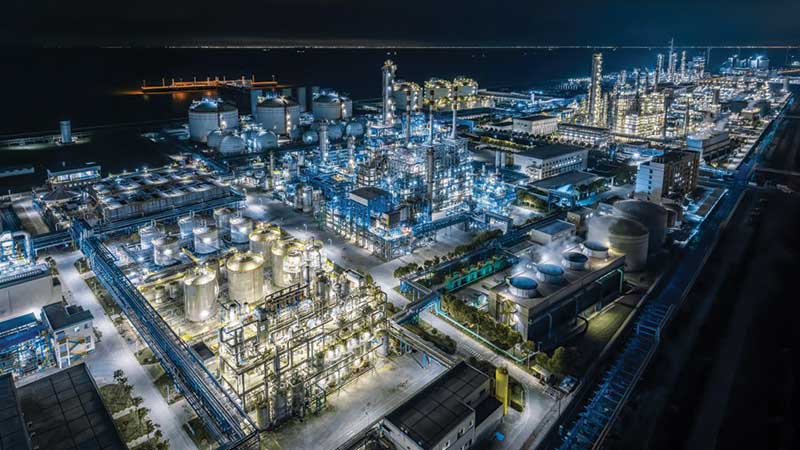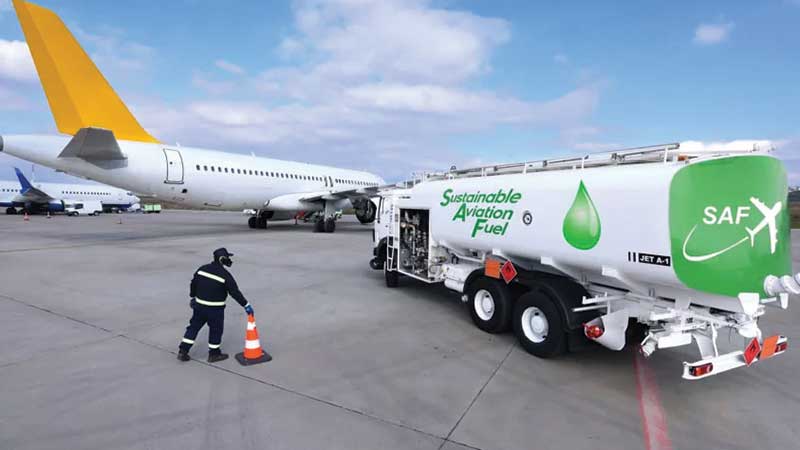A facility that will springboard new RNA therapies – which could help tackle cancer, heart conditions, and other diseases – will be established in Darlington, UK, thanks to £29.6m UK Government backing. The UK RNA Biofoundry will help UK scientists and businesses get their ideas out of the laboratory, and onto the market, quicker.
USAntibiotics, the only US manufacturer of amoxicillin and amoxicillin clavulanate, is collaborating with Walmart pharmacies and US healthcare company McKesson through their joint venture partner ClarusONE Sourcing Services to provide domestically manufactured antibiotics from their 36,600m2 production facility in Bristol, Tennessee, US. USAntibiotics claims this facility has the capacity to produce enough amoxicillin products to meet 100% of the nation’s demand.
Vioneo, a Belgian developer of fossil-free plastics, has awarded a major contract to ECI Group, a UK/US polymer technology licensing and engineering services company. The project will deliver the world’s first low-density polyethylene (LDPE) plant to operate using an entirely fossil-free feedstock. The facility, to be built in Antwerp, Belgium, will use ECI Group’s proprietary autoclave technology to produce 110,000t/year of LDPE from certified green methanol.
Vioneo’s fossil-free LDPE facility
German pharma Boehringer Ingelheim and Re-Vana Therapeutics, a US and UK-based developer of ocular therapeutics and ocular drug delivery technologies, have signed a strategic collaboration and license agreement that aims to develop extended-release therapies for eye diseases. Treating ophthalmic diseases often requires frequent injections directly into the eye, which can be very burdensome for patients. Re-Vana’s drug delivery technology is designed to release treatments slowly over six to 12 months, aiming to drastically reduce how often patients need eye injections. Lowering the treatment burden could lead to higher treatment compliance and potentially result in better therapeutic outcomes.
US biopharma Bristol Myers Squibb (BMS) and US private investment firm Bain Capital have announced the creation of a new independent biopharmaceutical company – NewCo – focused on developing new therapies for autoimmune diseases. The new company launches with five immunology assets licensed from BMS and a $300m financing commitment from Bain Capital.
Japanese chemical company Mitsubishi Chemical has adopted the Product Traceability Platform from Circularise Japan, as part of its efforts for the implementation of sustainable materials and to build a reliable supply chain for its chemical recycling business that is scheduled for commercialisation in fiscal year 2025. Circularise, founded in the Netherlands in 2016, is a platform development company that specialises in product traceability, helping companies improve resilience, reduce emissions, and create new business value. It achieves effective product traceability by enabling the collection and visualisation of data across the whole process, from the raw materials to final products.
German specialty chemicals company Evonik, and Ethris, a German clinical-stage biotech developing next-generation RNA therapeutics and vaccines, have entered a strategic collaboration to develop and market a novel lipid nanoparticle (LNP) platform for nucleic acid delivery. Through this collaboration, Evonik will expand its offering of formulation development services to customers with Ethris’ proprietary lipidoid nanoparticle (SNaP LNP) technology platform. Ethris will benefit from Evonik’s expertise in lipid process development and LNP formulation capabilities, as well as clinical manufacturing infrastructure.
Scipher Medicine, a US developer of network-based and AI-driven precision immunology, has formed a strategic collaboration with Maxymune Therapeutics, a US biotech focused on R&D of therapeutics for immunological disorders. Through this partnership, Maxymune will leverage Scipher’s platform to capitalise on Scipher’s target ranking capabilities across R&D programs.
10bn
UK materials innovation company Xampla has received $14m in private capital to accelerate its mission to replace single-use plastics with alternatives made from plants. The University of Cambridge spin out has created materials from plant protein to replace polluting plastics. Over the next five years, the funding will see Xampla’s Morro materials replace more than ten billion units of single-use plastic, including plastic linings found in takeaway boxes, coffee cups and sachets.
$1bn
US pharma Eli Lilly has launched Lilly TuneLab, an artificial intelligence and machine learning (AI/ML) platform that provides biotech companies access to drug discovery models trained on years of Lilly’s research data. Lilly estimates that this first release of AI models includes proprietary data obtained at a cost of over $1bn, representing one of the industry’s most valuable datasets used to train an AI system available to biotechs.
120,000t
US chemicals company Chevron Phillips Chemical has completed the expansion of its low viscosity polyalphaolefins (LV PAO) production unit in Beringen, Belgium, significantly boosting its manufacturing capacity in Europe. The project has doubled the site’s LV PAO production capacity to 120,000t/year, establishing it as the largest decene-based LV PAO facility in Europe by volume. LV PAOs are used in applications ranging from automotive lubricants to wind turbines.
40%
BASF, paints and performance coatings manufacturer AkzoNobel and French specialty materials manufacturer Arkema have teamed up to lower the carbon footprint of architectural powder coatings. The carbon footprint of AkzoNobel’s Interpon brand is up to 40% lower thanks to an ongoing value chain partnership with Arkema and BASF. The improvement has been made possible by using supplier-specific product carbon footprint data and sourcing bio-attributed raw materials.
US renewable energy technologies company USA BioEnergy has selected UK sustainable technologies company Johnson Matthey (JM) and US industrial automation corporation Honeywell to provide process technologies to produce synthetic paraffinic kerosene (SPK) at its biorefinery in Bon Wier, Texas, US. JM’s FT CANS technology and Honeywell’s FT Unicracking process technology, which both use the Fischer Tropsch pathway, will be deployed to produce SPK that complies with strict aviation industry standards once blended with conventional jet fuel. When operational, the plant is expected to convert 1mt/year of biomass – using responsibly sourced forest thinnings as feedstock – into 65m gallons (246m L) of transportation fuels, including SAF.
Honeywell technology used for Syzygy Plasmonics SAF project
The UK and Brazil have launched a partnership to tackle the environmental impact of fertilisers. Priority areas for the partnership will include protecting biodiversity and reducing greenhouse gas emissions, as well as developing more resilient supply chains. While fertilisers are beneficial for agriculture, they can cause significant pollution when overused and be a driver of climate change – being responsible for 5% of all global greenhouse gas emissions.
RION, a US clinical-stage regenerative medicine and exosome-based therapeutics company has announced the formation of INTENT Biologics, a new independent biotech focused exclusively on developing exosome therapies for treating inflammation and immunology.
German pharma Bayer has launched Bayer Co.Lab AdVenture, a new platform for its Bayer Co.Lab global life sciences incubator network, which aims to connect venture capital partners globally. The network bridges tenants of high-potential biotech startups with venture capital firms, accelerating access to global financing and investment networks.
US CDMO KBI Biopharma (a subsidiary of US biotech JSR Life Sciences) and US biotech Infinimmune, which is developing human-first antibody discovery and design, are collaborating to advance manufacturing of Infinimmune’s lead human monoclonal antibody (IFX-101) program. The Infinimmune strategy is to source antibodies directly from the human immune system, thereby tapping into a naturally optimised, safe and effective therapeutic reservoir, rather than engineering from scratch.
US pharmaceutical, biotechnology, and medical technologies company Johnson & Johnson is increasing its presence in North Carolina, US with a 15,000m2 dedicated manufacturing facility at CDMO FUJIFILM Biotechnologies’s new biopharmaceutical manufacturing site in Holly Springs, North Carolina. The $2bn commitment over the next 10 years will expand J&J’s US manufacturing capacity and create approximately 120 new jobs.
Biocodex, a French pharmaceutical developer of microbiota, has made an equity investment of €11m in MRM Health, a Belgian clinical-stage biotech developing microbiome-based therapeutics for inflammatory diseases and immune-oncology. MRM Health is developing innovative treatments based on the human microbiome to address major diseases such as inflammatory bowel diseases, autoimmune disorders, and certain cancers. Its lead asset, the flagship molecule MH002, has completed successful Phase IIa clinical trials in both ulcerative colitis and the rare disease indication of pouchitis.
US biopharma Amgen has announced plans to invest more than $600m in a new science and innovation centre at its global headquarters in Thousand Oaks, California, US. The centre will bring together researchers, engineers and scientists across disciplines to enhance collaboration and accelerate the discovery of next-generation therapeutics for patients with the most serious diseases.
OMass Therapeutics, a UK biotech identifying medicines against highly validated target ecosystems such as membrane proteins or intracellular complexes, has entered into an exclusive collaboration and license agreement with US biotech Genentech, a member of the Swiss healthcare Roche Group. Under the agreement, Genentech will have the right to develop and commercialise OMass’ preclinical oral small molecule program for inflammatory bowel disease. OMass will receive a $20m upfront payment, with the potential for more than $400m in additional milestone payments, as well as tiered royalties on net sales.
Bondalti Chemicals, a Portuguese chemical manufacturer, has successfully started operation of its chlor-alkali production facility in Estarreja, Portugal. Constructed by German engineering company CAC Engineering and using Japanese chemical company Asahi Kasei’s chlor-alkali electrolysis technology, the plant will also be used to reduce power consumption and optimise the use of materials in the chlor-alkali industry.
BTG Bioliquids (BTL), a Dutch developer of fast pyrolysis technology, and NanosTech Technology & Innovations, a Canadian catalyst development and manufacturing company, have signed a memorandum of understanding to produce advanced, drop-in biofuels. The partnership combines BTL’s fast pyrolysis technology, which converts sustainable biomass into bio-oil, with NanosTech’s proprietary Aquaprocessing platform, which upgrades bio-oils into refinery-ready feedstocks to produce fuels such as sustainable aviation fuel (SAF), renewable diesel and marine fuels.
Replicate Bioscience, a US clinical-stage developer of self-replicating RNA (srRNA) technology for applications across infectious disease, immunology and other therapeutic areas, has entered a multi-year research collaboration with Danish healthcare company Novo Nordisk. This collaboration unites Novo Nordisk’s deep therapeutic knowledge and drug development expertise with Replicate’s novel srRNA platform to develop new therapeutic candidates to treat obesity, type 2 diabetes and other cardiometabolic diseases.
US materials science company Dow and Italian recycling company Gruppo Fiorio have jointly developed a process that enables recovery of polyurethane waste from end-of-life vehicles without disassembly. This combines Dow’s expertise in materials science and Gruppo Fiori’s established automotive recycling ecosystem to create a new pathway for end-of-life vehicle materials. A typical car contains about 28kg of polyurethane, 10-15 kg of which is in seats.
Japanese chemical company Sumitomo Chemical has begun operation of a pilot facility at the Sodegaura site of its Chiba Works for its new proprietary process to produce propylene directly from ethanol. This technology is expected to significantly contribute to the petrochemical industry’s effort to switch to alternative feedstocks. Propylene is a widely used key chemical, and currently, in Japan, it is mainly produced from naphtha, a fossil resource. Ethanol, on the other hand, can be produced from biomass such as sugarcane, corn and non-edible materials like pulp.
Swiss headquartered Roche is acquiring clinical-stage biopharma 89bio, based in San Francisco, US, for approximately $3.5bn to gain pegozafermin, a fibroblast growth factor 21 (FGF21) analog, which is a potentially best-in-disease treatment for moderate to severe metabolic dysfunction-associated steatohepatitis (MASH), one of the most prevalent comorbidities of obesity.
German science and technology company Merck KGaA is collaborating with German venture company mantro to establish food technology company EdiMembre in Massachusetts, US. EdiMembre’s manufacturing capabilities for future food production will be used to commercialise Merck’s edible membrane tech for alternative protein. The aim is to create a platform for the complex tissue structures required for scalable production of structured cultured meat.







